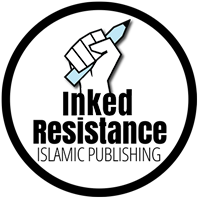
A History of English Islamic Fiction for Young and New Adults
Blog Post 11
August 26, 2018
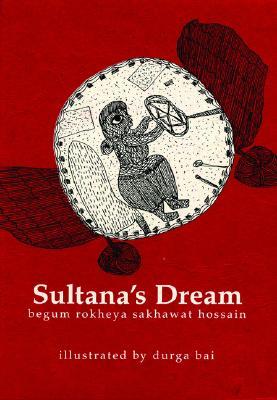

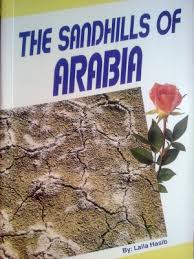

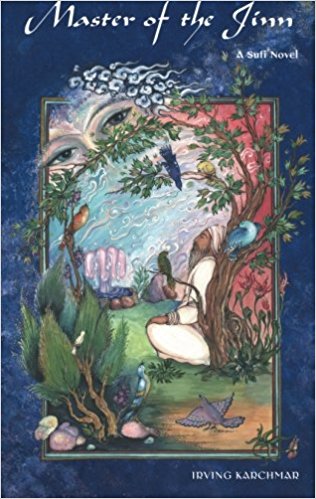

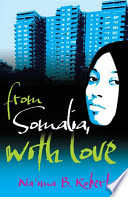
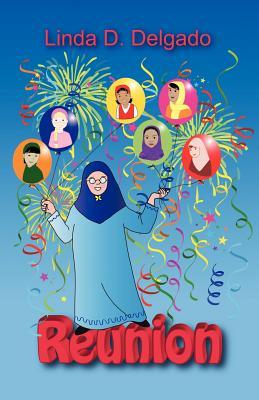

Before we begin, let’s get three points clear.
First, the definition of Islamic fiction, as provided by the Islamic Writers Alliance (IWA) in 2005/2006, is:
- creative, imaginative, non-preachy fiction books written by Muslims and marketed primarily to Muslims, but to mainstream markets as well
- content incorporates some religious ideas and themes and may include non-fictionalized historical or factual Islamic content with or without direct reference to the Holy Qur’an or the sunnah (sayings, teachings and actions) of Prophet Muhammad, peace and blessings be upon him and his family, real life situations and moral dilemmas
- Islam is portrayed positively
- does not include harmful content, such as vulgar language, sexually explicit content, un-Islamic practices that are not identified as un-Islamic or negative portrayals of Islam
Second, in my definition, young and new adult fiction ranges from around 12 to 30 years of age, although some young adult readers may be younger and some new adult readers may be older.
Third, any authors who have been left out of this blog piece is unintentional. Please let me now so I can correct it, inshallah.
112 Years of English Islamic Fiction
Interestingly, in 112 years, since 1905 through 2017, English Islamic fiction writers for young and new adults, who have books or magazines published in that genre, add up to 37. Out of those, 31, or 84%, are women and 12, or 32%, are converts to Islam. Five, or 13%, are black. And 24, or 65%, are Americans. Also important, 19 authors, or 51%, have had their books published by non-Muslim publishing companies. Four authors, or 11%, founded their own publishing company and the rest were either self-published or published by a Muslim publishing company or by Muslim Writers Publishing.
India
The first Islamic fiction story in English was by Rokeya Sakhawat Hossain, a Bengali social and educational Muslimah activist. Her utopian, science-fiction-esque short story, Sultana’s Dream, was published in India in 1905.
This was followed by Indian Muslim professor and diplomat Ahmed Ali’s novel, Twilight in Delhi, published in Britain in 1940.
United Kingdom
British Muslim convert Haji Uthman Hutchinson began publishing children’s books in 1981. This was followed by his juvenile fiction series Invincible Abdullah in 1992. The series tells the story of a British Muslim teenager similar to The Hardy Boys. The books are for ages eight to 12.
Leila Aboulela, a Muslimah professor born in Egypt to Egyptian and Sudanese parents, published The Translator in 1999, a collection of short stories entitled Coloured Lights in 2001, Minaret in 2005, Lyrics Alley in 2011 and The Kindness of Enemies in 2015. She lives in Aberdeen, Scotland.
An anthology, Between Love, Hope and Fear, published in 2007 by An-Najm Publishers in the United Kingdom, is a collection of short stories, poetry and essays written by Muslims and Muslimahs from around the world.
Sufiya Ahmed, an Indian British Muslimah, published a trilogy about Zahra, the first entitled Zahra’s First Term at the Khadija Academy in 2007. Her 2012 book, Secrets of the Henna Girl, is a story about a Pakistani British Muslimah and forced marriage.
A Golden Age, by Tahmima Anam, a Bangladeshi British Muslimah, was published in the United Kingdom in 2007. It tells the story of the Bangladesh war of independence. Its sequel, The Good Muslim, was published in 2011. The Bones of Grace was published in 2016.
Na’ima B. Robert, a British Muslimah convert who is Scottish and Zulu (both her parents are South African), born in England and brought up in Zimbabwe, published several children’s picture books, the first one in 2002 entitled The Swirling Hijab, and an autobiography, From My Sisters’ Lips, in 2005. She founded the United Kingdom-based SISTERS Magazine in 2007. Na’ima B. Robert published her first young adult book, From Somalia with Love, in 2009. She went on to publish three more books, the latest being She Wore Red Trainers in 2014.
Australia
Does My Head Look Big in This? by Randa Abdel-Fattah, an Australian Muslimah lawyer of Palestinian and Egyptian parents, was published in 2005 in Australia. She has written several more books, the latest in 2012.
Amra Pajlic’s The Good Daughter, published in 2009 in Australia, is a coming of age story about a Bosnian refugee Muslimah in Australia. Amra Pajlic is a Bosnian Australian Muslimah and teacher.
Ayesha Dean – The Istanbul Intrigue by Melati Lum, is the adventure of an Australian Muslimah of Australian and Indonesian parents reminiscent of the Nancy Drew stories. Melati Lum, an Australian Muslimah and lawyer, was born in Australia to Malay and Chinese parents.
Canada
Dahling, If You Luv Me, Would You Please, Please Smile by Rukhsana Khan, published in 1999, is the story of a Canadian Muslimah, 13-year-old Zainab. Her Wanting Mor, published in 2009, and Jameela, published in 2010, are about Afghan Muslimahs in war-torn Afghanistan. Her prose poetry novella, Not Guilty, is about an Iraqi immigrant Muslim to Canada. Rukhsana Khan is a Pakistani Canadian Muslimah and the author of many books for children.
Saints and Misfits by S.K. Ali, a Canadian Muslimah immigrant of Indian descent, was published in 2017 by Salaam Reads, an imprint of Simon & Schuster.
United States
It took over 50 years since Twilight in Delhi for an American author to publish Islamic fiction, but that niche was met when I (Laila Hasib) debuted with The Sandhills of Arabia in 1992 and its sequel, The Diamond in the Sand, in 1995. Al-Hamdulillah (All Praise to Allah), the newly formed Islamic Republic of Iran’s publishers took on the publishing duty. I am an American Muslimah convert living in Canada and began Inked Resistance Islamic Publishing, an Islamic fiction publishing company for young and new adults, in October 2017.
Yahiya Emerick, an American Muslim convert, wrote the mystery adventure series Ahmad and Layla Deen for young readers from 1996 to 2009. These books, among many others by Yahiya Emerick and other authors, are published through his own publishing company, Amirah Publishing, founded in 1992.
The American Muslim women’s magazine, Azizah, began in Atlanta, Georgia, in 2000 by Tayyibah Taylor, a black Barbadian American Muslimah convert born in Trinidad, and business partner Marlina Soerakoesoema, an Indonesian Muslimah convert. Azizah regularly features original short works of Islamic fiction and poetry. Tayyibah Taylor passed away in 2014. May Allah grant her Paradise.
Umm Zakiyyah’s If I Should Speak trilogy, published in 2001, is about three female college roommates and the discovery of Islam. Umm Zakiyyah, a black American Muslimah of convert parents, has written 25 books, the latest this year, published by Al-Walaa Publications, which only publish her work. She also writes under the pen name Ruby Moore.
Greek-American Muslimah convert and teacher Jamilah Kolocotronis’ first Islamic fiction title, Innocent People, self-published in 2003, tells the story of fear and suspicion after 9-11. Her five-book Echo Series, beginning with Echoes in 2006 and the last one, Silence, in 2009, are all about Joshua Adams, an American boy who converts to Islam, and are published by Muslim Writers Publishing. Her first book, published in 1990, is a non-fiction one titled Islamic Jihad: An Historical Perspective. Jamilah Kolocontronis passed away in 2013. May Allah grant her Paradise.
Linda D. Delgado, an American Muslimah convert and retired state police sergeant, began self-publishing her five-book Islamic Rose series in 2003. The books are about nine- to 12-year-old Rose’s self-discovery through her Muslim grandmother. Linda D. Delgado founded the Islamic Writers Alliance (IWA) in 2004 and Muslim Writers Publishing in 2006 through which she published her last book, Reunion, in the Islamic Rose Series in 2012. The Islamic Writers Alliance (IWA) produced two anthology titles of Islamic fiction and poetry, Many Poetic Voices, One Faith in 2008 and Many Voices, One Faith II – Islamic Fiction Stories the following year. IWA also produces a quarterly online magazine, IWA Magazine (formerly known as Islamic Ink) which features Islamic fiction. Linda D. Delgado passed away in 2017. May Allah grant her Paradise.
In 2014, the last book published by Muslim Writers Publishing is entitled Secrets Under the Olive Tree by Nevien Shabaaneh, a Palestinian American Muslimah.
In 2004, American Muslim convert and Sufi darvish Irving Karchmar self-published his mystical novel, Master of the Jinn: A Sufi Novel, about seven Sufi companions’ journey to find the ring of power along the Sufi path of love. His latest fiction book, Puerto Diablo: A Tale of Good and Evil, was self-published in 2014.
The Girl in the Tangerine Scarf, by Mojha Kahf, a Syrian American Muslimah literature professor in the United States, is the story of a Syrian immigrant Muslimah in Indiana, published in 2006.
Muslimah American, part Iranian part American, Maryam Mahmoodian’s Muslim Teens in Pitfalls and Pranks was published by Muslim Writers Publishing in 2008.
American Muslimah convert Najiyah Diana Helwani’s juvenile Islamic fiction book, Sophia’s Journey: Time Warp 1857, was published in 2008 by Muslim Writers Publishing. Classified as historical and science fiction, it tells the story of a 16-year-old Muslimah who time travels to Kansas during slavery.
Damazine, a quarterly online literary journal founded by Serene Taleb-Agha, a Syrian American Muslimah, and run out of Syria in 2008, published Muslim-related fiction, creative nonfiction and poetry.
Sheba Khan’s Skunk Girl, published in 2009, is the story of a Pakistani American Muslimah. That Thing We Call a Heart was published in 2017. Sheba Khan is a Pakistani American Muslimah.
Founding member, website creator and editor and the youngest Assistant Director of the Islamic Writers Alliance (IWA), Maryam “Umm Juwayriyah” Sullivan’s teen/adult novel, The Size of a Mustard Seed, published by Muslim Writers Publishing in 2009, is categorized as “the first known Urban Islamic fiction title.” It tells the story of a 27-year-old Muslimah hairdresser who wants to get married. Umm Jawayriyah is a black American Muslimah and the creator of #MuslimGirlsReads. Her latest book, Tried and Tested, published in 2017, is the story of a Muslimah who goes off the track and returns home.
Shooting Kabul, published in 2010, and Saving Kabul Corner, published in 2014, are about Afghan Muslim immigrants to America, written by N.H. (Naheed Hasant) Senzai. Her Ticket to India, published in 2015, is the story of 12-year-old Maya’s, a Pakistani American Muslimah, adventure and her family’s history during the partition of India. N.H. Senzai is a Pakistani American Muslimah and her latest work, Escape From Aleppo, was published in January 2018.
Bestest. Ramadan. Ever. by Medeia Sharif, a Kurdish American Muslimah and teacher, was published in 2011. She has written several other books, some of which do not fit the Islamic fiction category, for example her latest book of 2015, Hot Pink in the City.
Ayad Akhtar’s American Dervish, published in 2012, explores Muslim identity through a young male Muslim character. Ayad Akhtar is American of Pakistani descent and an actor and playwright.
When Wings Expand by Mehded Maryam Sinclair, an American Muslimah convert, is about a Turkish Canadian Muslimah and her mother who is dying of cancer. It was published in 2012.
G. Willow Wilson’s Alif the Unseen was published in 2012. Her Ms. Marvel graphic novel series began in 2013 with Ms. Marvel, Vol. 1: No Normal. Ms. Marvel is Kamala Khan, a Pakistani American Muslimah. G. Willow Wilson is an American Muslimah convert. Her 24 Ms. Marvel books are published by Marvel Comics. She has authored many more books.
The Garden of My Imaan by Farhana Zia was published in 2013. Her book, Child of Spring, was published in 2016. The books are for ages eight to 12. Farhana Zia is an Indian American Muslimah and a teacher.
Written in the Stars by Aisha Saeed, published in 2016, is the story of a Pakistani immigrant Muslimah’s arranged marriage. Her book, Amal Unbound: A Novel, published in May 2018, is the story of indentured servitude in Pakistan. Aisha Saeed is a Pakistani American Muslimah.
MuslimMatters.org, a popular multi-author Muslim blog founded by Amad Shaikh in 2007, has published a series of genre-blending novels, including Islamic fiction, action, mystery and thriller, by Wael Abdelgawad, an Egyptian American Muslim. His Pieces of a Dream was self-published in 2017 and is the story of an Iraqi war veteran who finds Islam.
Saba Syed, an American Muslimah professor, published her first young adult novel, An Acquaintance, in 2017 with Daybreak Press. It is a story of the challenges of Muslimah teens in post-9-11 small town America. She also writes for MuslimMatters.org.
Amina’s Voice by Hena Khan was published in 2017. It is for ages eight to 12. Hena Khan is a Pakistani American Muslimah.
Questionable
These books don’t really fit the definition of Islamic fiction.
The Taqwacores, originally self-published in 2003 by Michael Muhammad Knight, an American Muslim convert and professor, depicts a punk rock scene. In 2009, he published Osama Van Halen, with characters from The Taqwacores.
Aliya Husain’s Neither This Nor That, self-published in 2010, is the story of an Indian American Muslimah of immigrant parents in search of her identity. She is an Indian American Muslimah. Too much profanity.



